
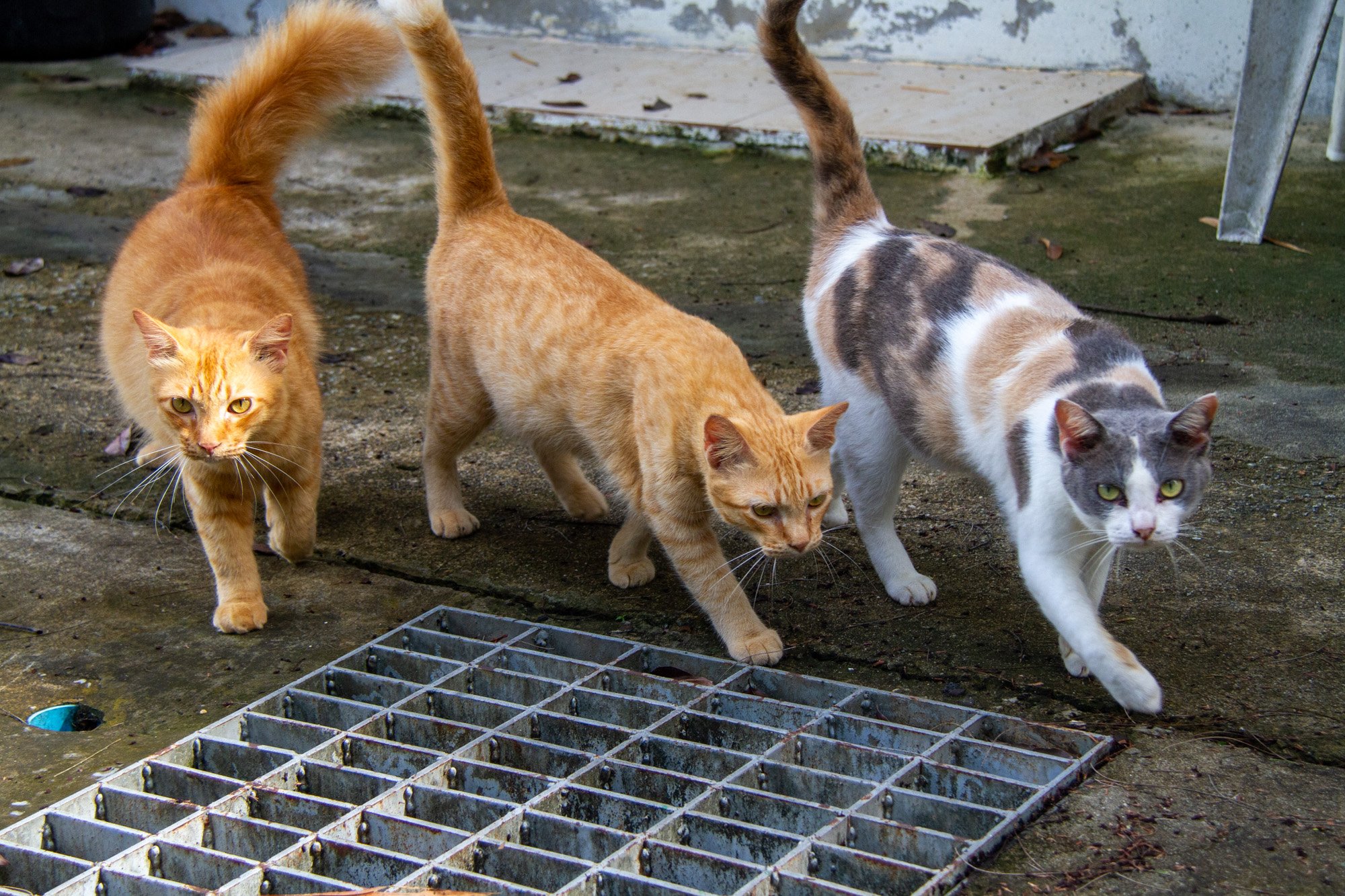
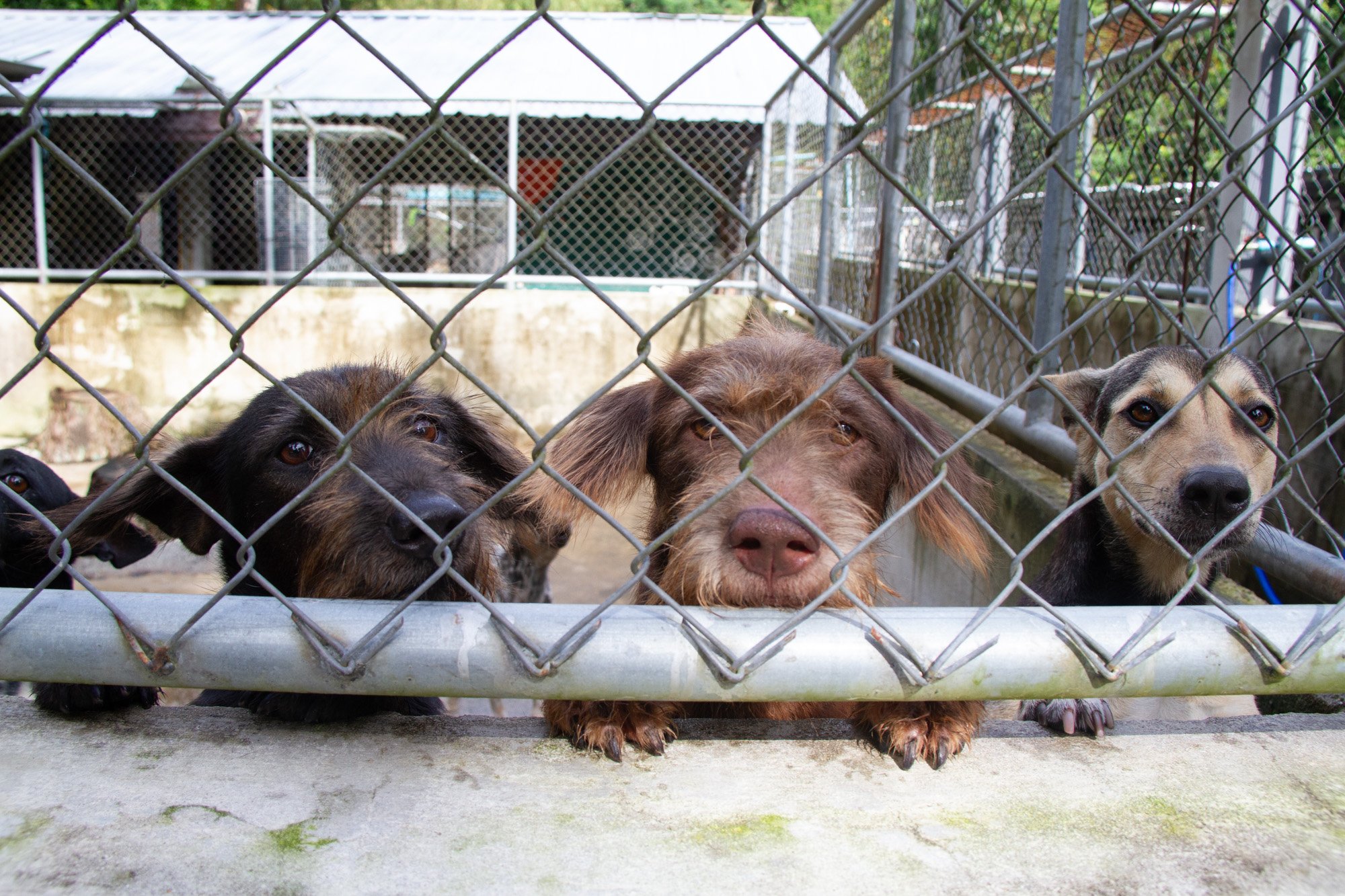
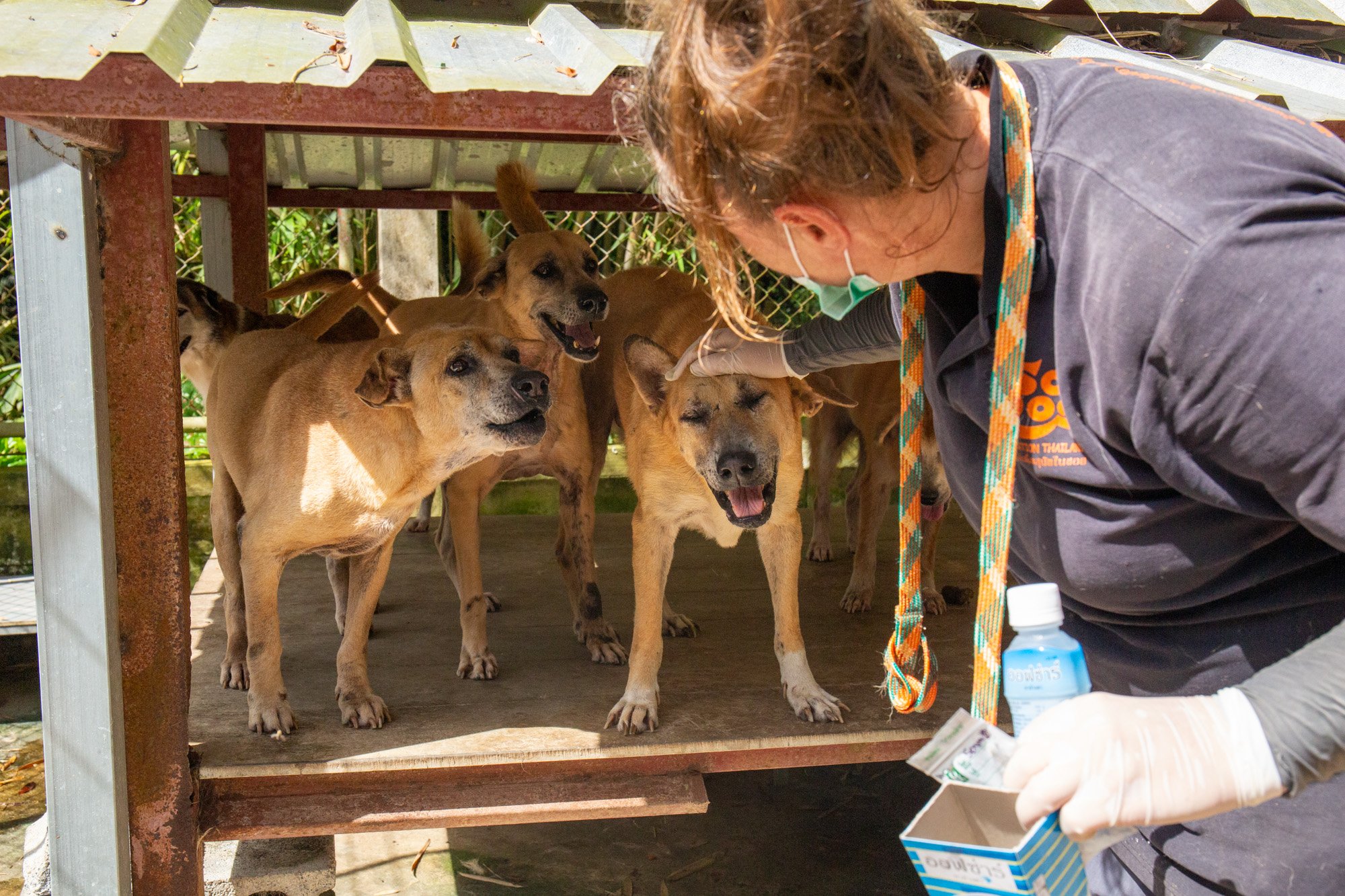
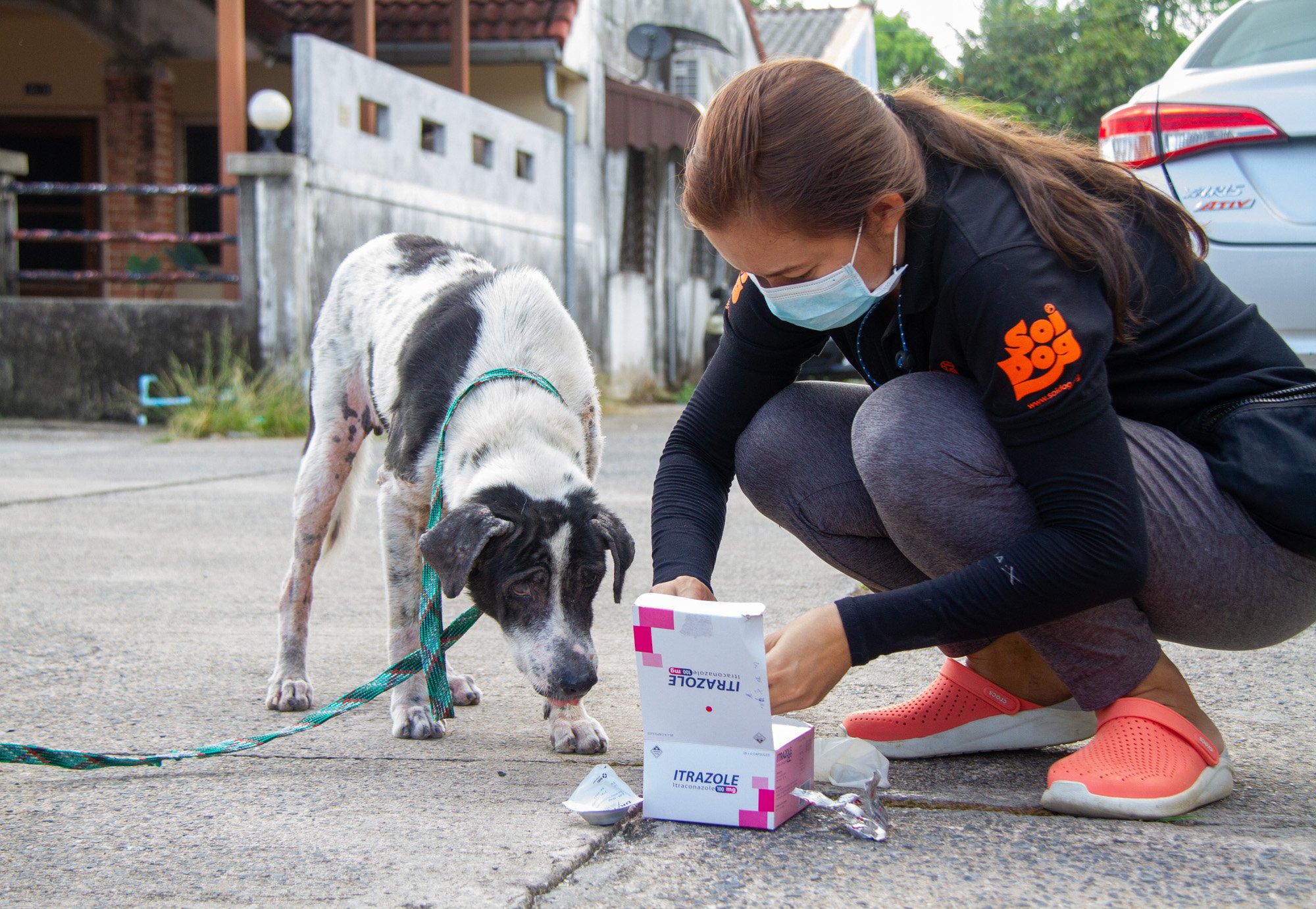
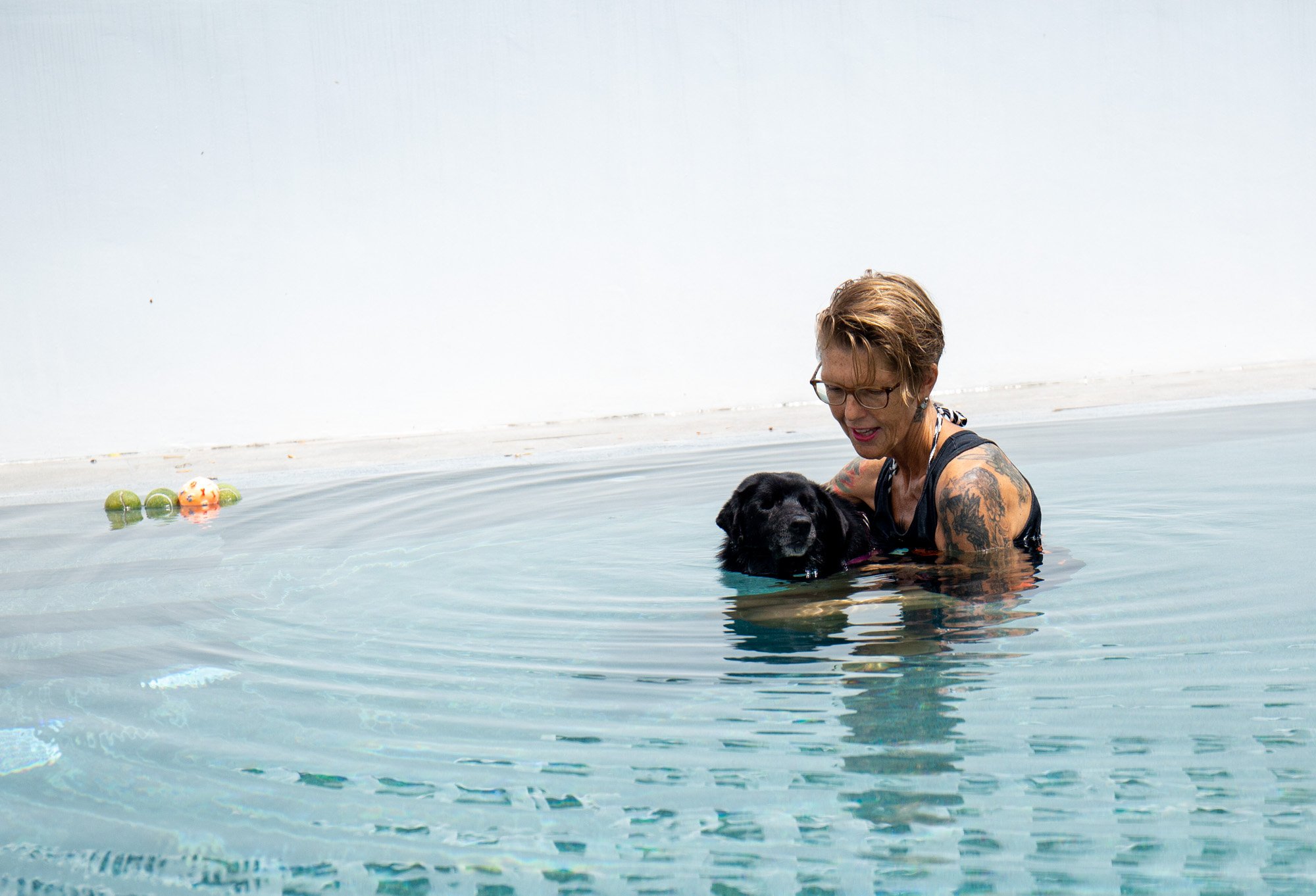
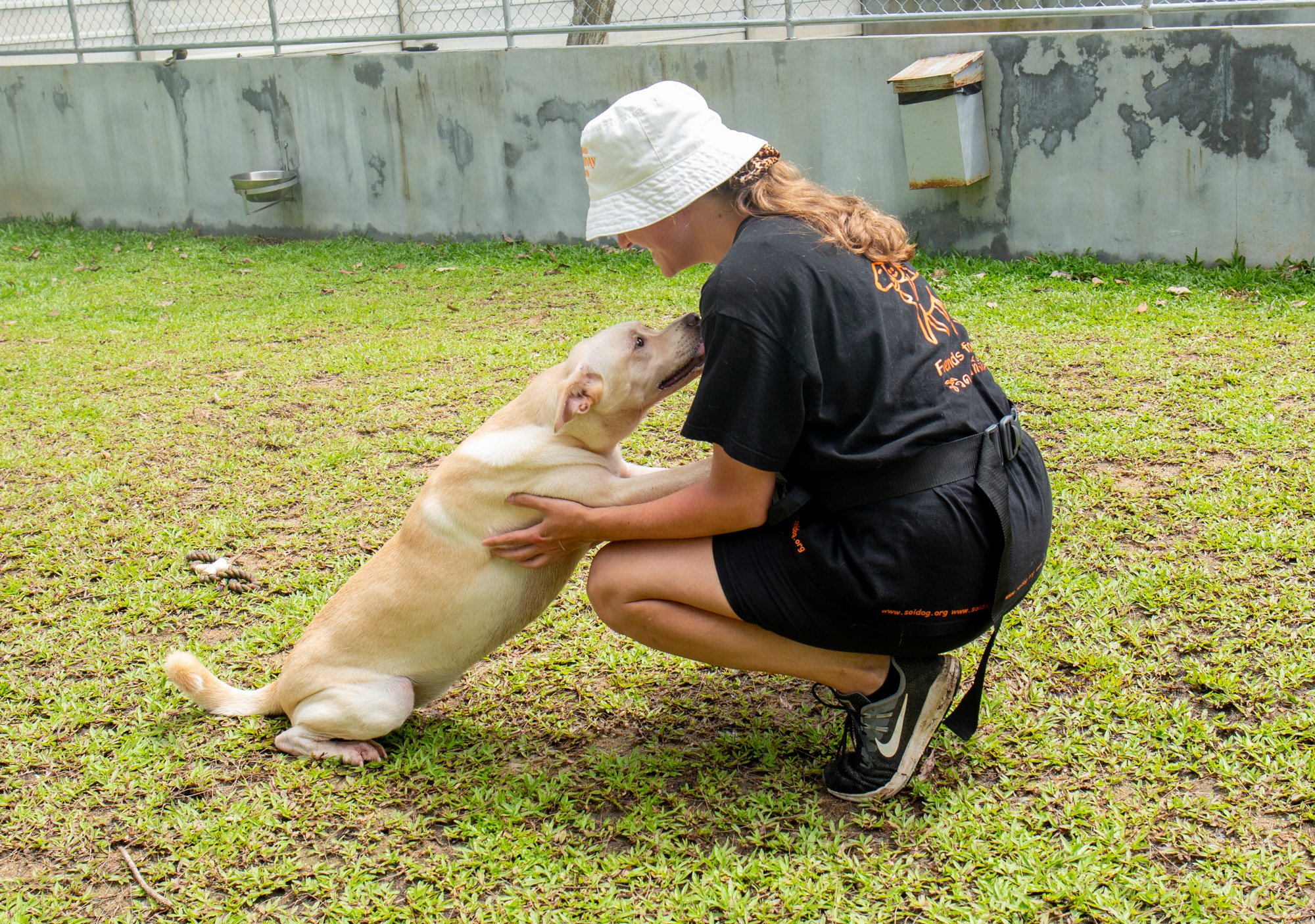
IMAGES BY SHERRI HARVEY AND DANNETTE PETERSEN
WORDS ADAPTED BY JULIA RATHBONE FROM THE FILM BY SHERRI HARVEY
EDITED BY CHRISTINE PICKERING
Stray dogs and cats have been a daily part of life in Thailand for thousands of years, and overpopulation has become a huge problem. One reason for this is that many animals—even pets—are not neutered or spayed. When they have puppies or kittens, if the owner cannot care for them or if they do not have owners, the babies are abandoned at temples, shelters, or on the street. These strays often live short and miserable lives, suffering or dying from infectious diseases and various medical ailments, starvation or thirst, attacks from other animals, and traffic accidents, among other causes.
Since its inception in 2003, Soi Dog Foundation (Soi Dog) has been dedicated to the cause of animal welfare and to ethically addressing the issue of overpopulation. According to the organization’s website, “the only ethical and most effective way of managing a stray dog population is through a programme of mass spay and neuter, or CNVR (Catch, Neuter, Vaccinate, Return).”
A Soi Dog resting comfortably inside a cement tube at Soi Dog.
Soi Dog has neutered and vaccinated almost a million cats and dogs since it opened its doors, and they are currently reaching more than 17,000 animals a month. While in 2015, the island of Phuket had over 700,000 strays, by 2022, that number had dropped down to 7,000—mostly thanks to Soi Dog and its CNVR campaigns.
With 1,600 animals at the shelter and well over 200 animals treated weekly, the Soi Dog community is always shifting—a rotating staff of volunteers walk the dogs, and the shelter staff offer around-the-clock medical care, perform physiotherapy, do laundry, clean kennels, maintain the grounds, answer questions, and speak on behalf of animal welfare all day long.
The COP team in full force. From left to right: Chonebordee Ekarohit (Guy); Win Lwin Htike (Jaet); Nippawan Chamsub (Tuotorr); Regina Telbisz; Prathana Krudkrua (Woon); and Sirilada Thongkasem (Dr. Namtarn)
“The only ethical and most effective way of managing a stray dog population is through a programme of mass spay and neuter, or CNVR (Catch, Neuter, Vaccinate, Return).”
The foundation also operates a mobile vet team, through their Community Outreach Program (COP), that works all over the island. The COP team responds to calls from local community members, concerned citizens and “feeders:” local volunteers who look after stray dogs and cats. Some feeders care for over 150 cats and dogs each. When a stray is located, they might need treatment for any number of reasons: from flea and tick treatment to blood pressure issues and wound cleaning.
A Soi Dog Foundation truck driving along the road in Mai Khao village in Phuket.
Soi Dog marks all treatments “payment optional,” asking only for a donation, and a promise to spay or neuter the animal being cared for. In Phuket, many people do not have the means to give a donation and thus are receiving free treatment and medication. If the owner or caretaker is willing, they can bring the animal to the shelter; otherwise, they are provided with at-home care. In addition to treating the stray, the COP team also runs educational programs, teaching caregivers and feeders basic animal first-aid as well as how to identify and treat injuries.
This program also targets schoolchildren, teaching them at a young age to understand the ‘Five Freedoms’ from the Universal Declaration on Animal Welfare (UDAW), which include freedom from hunger, thirst, malnutrition, fear and discomfort, among others. Importantly, the program encourages children to understand that animals are sentient beings who can experience suffering and distress, just like humans. As Soi Dog explains, “people's attitudes towards animals are formed at an early age. If more people grow up with empathetic attitudes to dogs and cats, there will be fewer cases of cruelty and neglect.”
The COP team providing medical treatment to a cat.
“People’s attitudes towards animals are formed at an early age. If more people grow up with empathetic attitudes to dogs and cats, there will be fewer cases of cruelty and neglect.”
Despite their best efforts, the Soi Dog team faces many challenges, which include a lack of support from the community; an absence of medical follow-up for sick or treated dogs; not being able to catch cats and dogs who have been identified as strays; the animals’ unwillingness to accept treatment; and the physical and mental exhaustion of the staff.
Nevertheless, Soi Dog strives to help the community understand the necessity of the treatment, protection and sterilization of these strays through their outreach and education programs. The deep respect for and love of animals keeps Soi Dog Foundation working to protect their rights and welfare across Phuket.
To support the Soi Dog Foundation and learn more about the organization’s work, visit their website.
A dog that now lives at the local police station watches the COP Team arrive to help him.










